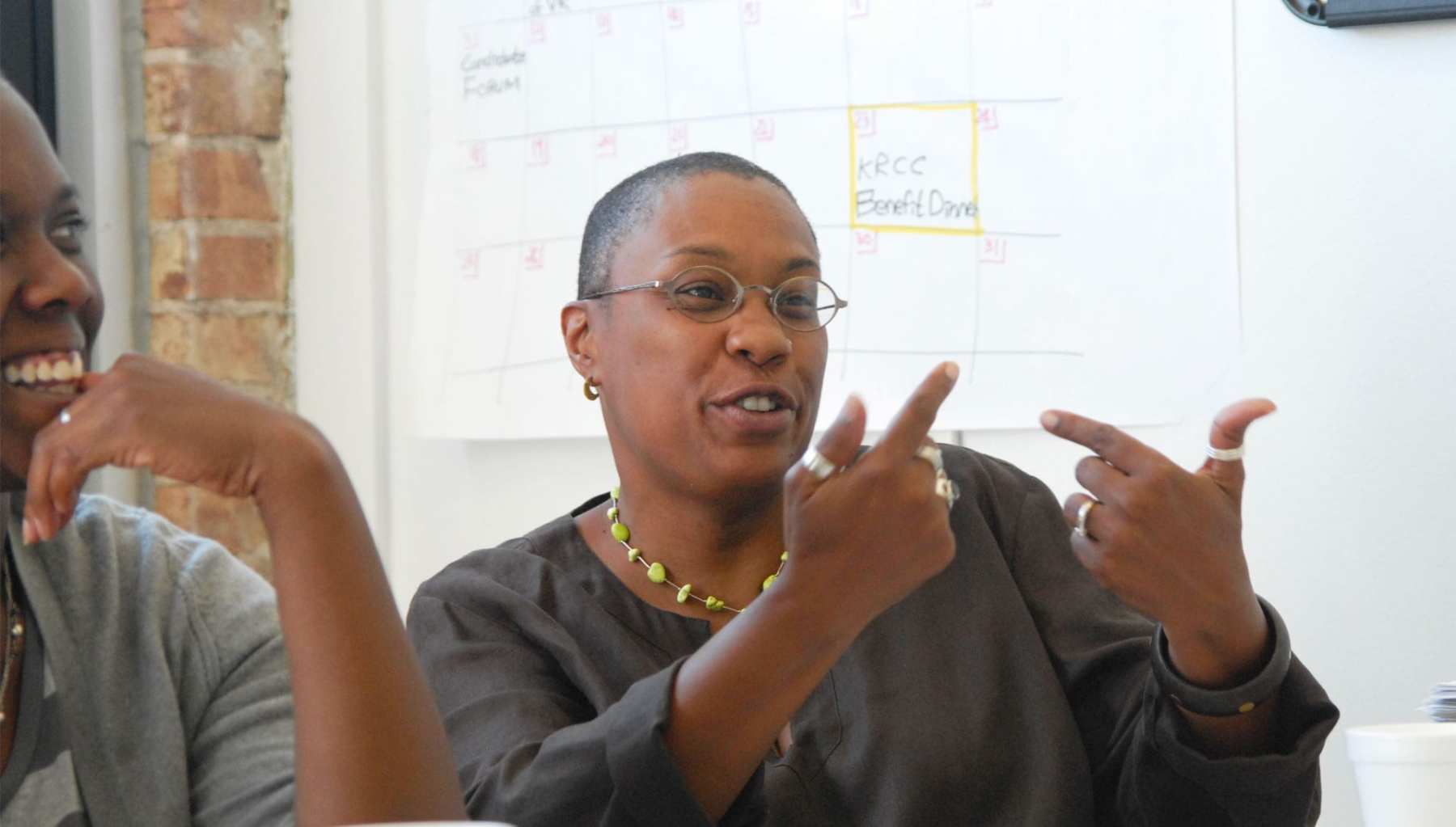For the latest news on the historic presidential inauguration and impacts of the new administration, subscribe to The 19th’s daily newsletter.
A lot of kids spend their teenage years worrying about dates and dances. Eli Bundy has spent theirs in constant fear of new laws that would limit their health care.
Bundy is a transgender 16-year-old in Charleston, South Carolina, a state that has repeatedly weighed bills that would prevent minors from accessing gender-affirming care like reversible hormone blockers.
“I guess there are a lot of people that seem to not want LGBTQ people to live fulfilling lives or to be able to be participatory, active members of society,” Bundy said. “I feel like, especially as a teenager, or someone in school, that a lot of the policies that I see being enacted target students.”
Growing up under the Trump administration has been stressful, Bundy said. LGBTQ+ organization GLAAD claims the former president waged more than than 180 attacks on queer people over the last four years. The inauguration of President Joe Biden and Vice President Kamala Harris feels like a new day for Bundy.
“In a lot of ways, it’s a big sigh of relief to not necessarily have to be worrying about that stuff all the time,” they said. “And worrying that we have to fight against everything that comes from Congress, that comes from the White House.”
But LGBTQ+ Americans have greeted the Biden-Harris inauguration with mixed emotions. To many, the moment marks a new dawn, the end of deeply distressing four years. Others are simply exhausted, with hope in short supply.

Bre Kidman, a nonbinary attorney and former U.S. Senate candidate from Maine, won’t simply be watching to see if the new administration makes good on promises to cement LGBTQ+ protections. They are more worried about the economic challenges facing queer people.
“The biggest thing that we’re gonna have to deal with is the way in which people who are experiencing poverty are not given any real voice or advocacy in our government,” Kidman said. “I think we have to deal with the economic realities of our situation.”
Others are more optimistic. Kim Hunt, a veteran advocate for racial justice and LGBTQ+ equality in Chicago, recalls the whiplash she felt during the first days of the Trump presidency.
“I remember shortly after the inauguration, just the onslaught of harmful policies and actions just coming out so fast and furious from the Trump administration, after eight years of a friendly White House … I just remember, even the first few weeks, just feeling so exhausted,”
In his time in office, former President Donald Trump banned transgender people from serving openly in the military, rolled back health-care protections for transgender people in the Affordable Care Act, battled LGBTQ+ workplace protections in landmark court cases, defied judge’s orders to issue X gender markers to intersex and nonbinary Americans on passports, barred embassies across the world from flying Pride flags, and greenlit discrimination against transgender people in homeless shelters.
Hunt is hopeful about the new administration, but like many, she also sees overwhelming challenges. Hunt is the executive director of the Pride Action Tank at the AIDS Foundation of Chicago, a role that has put her at ground zero in the fight against health disparities facing LGBTQ+ people.
Hunt wants the new administration to restore health-care protections axed under the Trump administration.
“A lot of damage has been done to the Affordable Care Act, which everyone acknowledges was not perfect to begin with, but was still a miracle,” she said. “And it has been chipped away at in so many places. So that has to be dealt with.”
On Wednesday, Biden started to reverse some of that damage, signing an executive order that enforces the Supreme Court’s June 2020 ruling that gave LGBTQ+ people federal employment protections. The Trump administration had previously declined to enforce the ruling.
Kimberly Zieselman, executive director of interACT: Advocates for Intersex Youth, hopes that administration will also advance intersex rights for the first time.

“I’m cautiously optimistic that the nearly 2 percent of people in this country born with variations in sex anatomy, or intersex, will finally be acknowledged and included in crucial federal initiatives addressing everything from data collection and access to affirming medical care, to serving in the military and living free from sex-based discrimination,” Zieselman said.
Last year, Lurie Children’s Hospital became the first in the nation to ban some intersex surgeries for youth, which advocates can cause a lifetime of trauma and pain. This year, California is aiming to be the first to outlaw the surgeries for children under the age of 6.
Others are less upbeat about the days ahead. Ash Williams, a trans Black femme organizer in North Carolina, feels like little will change for other Black trans people in the South.
“For me, this inauguration doesn’t really signal anything,” Williams said. “If anything, I’m very worried. I’m worried about who Kamala Harris is. I’m worried about who Biden is … Those conditions that I face, and the people in my community face, those things I don’t see changing.”
While the nation’s largest LGBTQ+ organizations praised Biden and Harris as the most pro-equality ticket in U.S. history during the campaign, some queer people have expressed caution about the duo.
Biden’s 2012 announcement that he supports marriage equality cemented his status as a hero to many LGBTQ+ Americans, but young queer voters in 2020 were slower to embrace his centrist message in a crowded field of further left candidates like Sens. Bernie Sanders and Elizabeth Warren.
And while Harris championed LGBTQ+ issues on the trail, she was dogged by questions about her history as a prosecutor, including her oversight of California’s former refusal to provide an incarcerated trans woman gender-affirming medical care.
Harris was also asked to answer for her support of FOSTA/SESTA, a package of bills that shuttered websites used by sex workers, which many trans advocates claim has fueled an uptick in violence against queer people. Many LGBTQ+ organizations have supported decriminalizing sex work in recent years, noting that transgender women of color, in particular, are engaged in the underground economy, in part due to employment discrimination.
But Kye LaPierre, an advocate for the community, said that despite Harris’ past, they are looking forward to the Biden-Harris administration.
“I feel the new administration will be more open and receptive to listening to highly marginalized communities, particularly consensual sex workers,” LaPierre said. “There’s hope now that our position on full decriminalization will be listened to and taken into consideration.”






